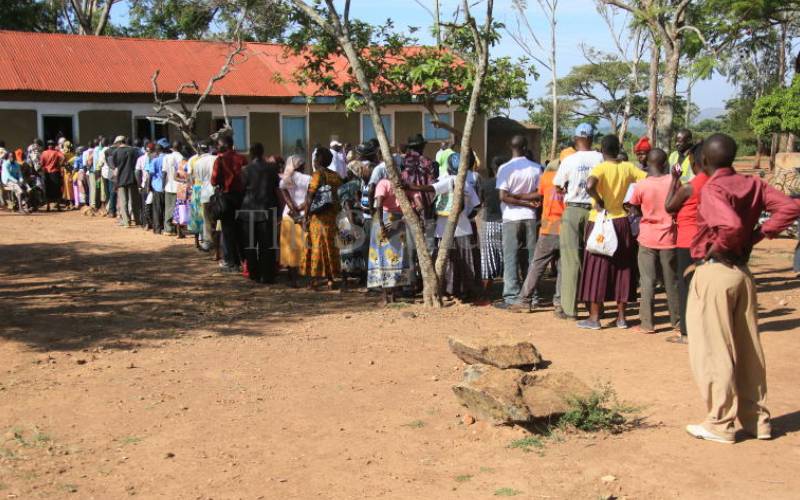×
The Standard e-Paper
Home To Bold Columnists

Vijana Tugutuke, was a social mobilisation and motivational campaign that used artists as agents and messages carriers and targeted the youth with ID cards. [Benjamin Sakwa, Standard]
History has an uncanny way of repeating itself. Before the 2002 elections both the number of registered voters and voter turnout were very low. The total number of registered voters was only a third of the current one and the turnout was about half of the registered voters